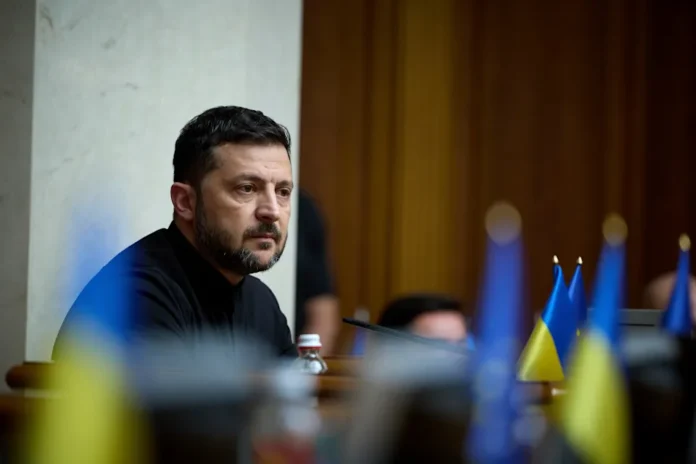EU Voices Strong Objection
On Tuesday President Volodymyr Zelenskyy put his signature on a bill that shifts control of Ukraine’s top anti corruption bodies to the office of the Prosecutor General. In practice this moves the National Anti‑Corruption Bureau (NABU) and the Specialized Anti‑Corruption Prosecutor’s Office (SAPO) under direct presidential influence. European leaders reacted quickly.
Marta Kallas, a European Union official, said that removing safeguards for NABU and SAPO “marks a big step back for rule of law”. Another spokesperson at the European Commission noted that EU aid to Kyiv hinges on clear progress in transparency and justice. These comments make it clear that independent oversight is central to Ukraine’s path to join the bloc.
First Wartime Protests Sweep Major Cities
By evening hundreds gathered in Kyiv, Lviv and Odesa to oppose the move. Protesters held banners reading “Keep Anti Corruption Strong” and “No to Political Control.” Many of those in the crowds were young people and war veterans who feel the fight against graft built trust at home and among allies.
Anastasia, a student who took part in the rally, told Politico.com that she sees the law as a threat to the gains made since 2015. She said the protests are a sign that Ukrainians will push back if democratic gains erode. Reports say these are the first mass gatherings inside Ukraine since Russia launched its full scale invasion in February 2022.
Roots and Risks of the New Law
Ukraine’s anti corruption agencies were created in 2015 after mass street protests called for deep reform. Officials set up NABU and SAPO to work without political oversight. The bill passed parliament with a large majority of 263 in favor and only 13 against. It follows recent raids on NABU offices on July 21, when security services arrested an employee over espionage claims.
Critics say the charges were used to pressure the agency before the vote. NABU Director Semen Kryvonos urged Zelenskyy to reject the bill or risk undoing years of reform. A leading watchdog group argued that the measure makes these bodies unable to carry out real investigations.
Impact on EU Bid and Public Trust
Ukraine has long linked its goal of joining the European Union to strong anti graft measures. Brussels set clear benchmarks on judicial independence and control of corruption. The new law could stall or even pause membership talks. It may also shake public faith in Kyiv’s commitment to fight corruption, at a time when international partners are sending billions in military and financial aid. A loss of trust could slow down funding and weaken Ukraine’s standing on the world stage.
Personal Analysis
I see this step as a risky move at a crucial time. Ukraine faces an existential threat from Russia and needs all the backing it can get. By weakening agencies that many saw as symbols of reform, the government undermines its own credibility abroad. On the home front citizens who rallied for change may grow disillusioned. And that can turn into a larger divide at a moment when unity matters most. It feels like taking one step forward on the battlefield but two steps back in governance.
Sources: ec.europa.eu


